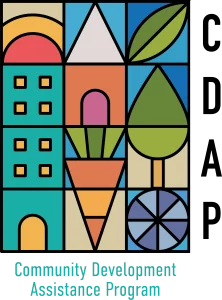So, a metro ATL arts leader, parks expert, and government leader walk into a Primanti Brothers…
Okay, fine: We don’t know if anyone on the 2019 LINK trip actually visited Pittsburgh’s famously sloppy sandwich dive, but here’s what we do know:
About 100 leaders from the Atlanta region converged on the city of Three Rivers this year to see what lessons they could bring back home. As we reported recently, the metro Atlanta delegation represented areas as diverse as the arts and nonprofit spheres, as well as philanthropy, business and local government.
Their questions? How has the ‘Burgh tackled some of its biggest challenges on its way to becoming consistently rated as one of the most “livable” cities in the nation? Where does the region still struggle? And what tools can we adapt here to make metro Atlanta an even better place to live?
The Big Takeaways from the Trip
From tech, to the arts, to transportation, Pittsburgh metro leaders returned repeatedly to two themes.
From Tech to the Arts, Collaboration is Key
Despite having a whopping 635 municipalities, the Pittsburgh region has, in recent years, found new ways to work together to build a brighter future. Its influential foundations play a major role in this effort, working directly with government leaders and with one another to address local issues—a move one local philanthropic leader credited to “the local culture—which tends to be very collaborative.”
Atlanta City Council president Felicia Moore found inspiration in this widespread spirit of partnership. “Many of our challenges are solvable,” she said. “To see how Pittsburgh has worked with the foundations, with the interfaith community, and with all of the different aspects, I just come away a bit more hopeful that we take this energy back to our region. It’s not all on the city government or the county government. It’s all of us working together and everyone having that collaboration.”

Addressing Equity is a Priority
From Pittsburgh mayor Bill Peduto’s welcoming speech, in which he introduced the unofficial refrain, “If it’s not for all, it’s not for us,” to the rousing talk from the city’s Chief Equity Officer, Majestic Lane, equity permeated every conversation.
Heinz Endowments President Grant Oliphant introduced the idea of “two Pittsburghs” during a talk in which he contrasted the renewal experienced by much of the city with the struggles of the “other Pittsburgh, experienced by folks who are poor, who are separated by lines of geography and class, and who are, in this town, disproportionately African-American.” He went on to champion efforts to break that pattern, such as the p4 initiative, described briefly below.

What Happens in Pittsburgh Doesn’t Stay in Pittsburgh
Five carefully-curated excursions and work sessions were designed to encourage participants to hit the ground running here at home—taking what they learned to work together to foster specific change in the Atlanta region.
The big takeaways…
- One group visited Pittsburgh’s historic Hill District, a culturally-vibrant set of African-American neighborhoods experiencing widespread redevelopment after decades of damage from so-called “urban renewal” projects of the 20th LINK leaders are now looking at the local potential for community-developer arrangements like the Hill’s Community Benefits Agreement — meant to reduce the ill-effects of redevelopment on local residents.
- Pittsburgh is known for its vibrant arts scene, including a 14-block cultural district that brings in nearly 2 million visitors each year. LINK leaders will look at the potential of funding mechanisms similar to Allegheny County’s Regional Asset District, which supports community-valued resources from the arts to sporting venues, to parks and libraries—all via a single fund.
- Thanks in part to groundbreaking partnerships among local universities, private firms, and local governments, Pittsburgh is an urban lab for cutting-edge tech. LINK leaders are considering what it would take to formalize university-government collaborations and agreements to enhance the benefits of tech research taking place here at home.
- Pittsburgh’s p4 guidelines are a set of equitable development principles that consider how new economic development impacts the community and environment. LINK leaders will consider how a similar set of guidelines could be generated to effect positive change in metro Atlanta.

LINK leaders met with faith and religious leaders to learn how formalized relationships in the Pittsburgh region has developed a strong safety net of community support, especially following 2018’s tragic shooting at Pittsburgh’s Tree of Life Synagogue shooting in 2018. LINK leaders are exploring whether a similar official alliance among faith leaders might have a positive impact in metro Atlanta.
What’s Next ATL, produced by the Atlanta Regional Commission, is a community resource that explores how metro Atlanta is growing and changing, and how the region is addressing its most pressing challenges.


